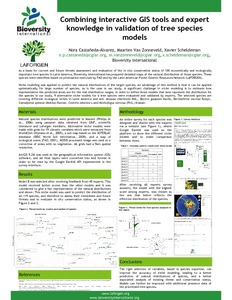CIFOR annual report 2008: Thinking beyond the canopy
Combining interactive GIS tools and expert knowledge in validation of tree species models
Community forests: Reconciling customary and legal concepts
Conserving and managing forest biodiversity
Council forests: The case of Dimako
Dampak izin pemungutan dan pemanfaatan kayu (IPPK) pada desa-desa di daerah aliran sungai Malinau
Desentralisasi tata kelola hutan: politik, ekonomi dan perjuangan untuk menguasai hutan di Kalimantan, Indonesia
El papel de las instituciones informales en el uso de los recursos forestales en América Latina
This study adopts an institutional approach to analyze the way in which informal rules, in their interaction with formal rules, shape the use of forest resources by diverse types of smallholders and communities (i.e., indigenous people, agro-extractive and traditional communities) in Latin America.
Emerging REDD+: a preliminary survey of demonstration and readiness activities
This paper presents the results of a preliminary survey of emerging demonstration and readiness activities to reducing emissions from deforestation and forest degradation and carbon stock enhancement (REDD+) across Africa, Asia, and Latin America. The survey was conducted between November and December 2008, and the information collected was updated until May 2009.
Face à un avenir incertain: comment les forêts et les populations peuvent s’adapter au changement climatique
The most prominent international responses to climate change focus on mitigation (reducing the accumulation of greenhouse gases) rather than adaptation (reducing the vulnerability of society and ecosystems). However, with climate change now inevitable, adaptation is gaining importance in the policy arena, and is an integral part of ongoing negotiations towards an international framework.
Facilitating forests of learning: Enabling an adaptive collaborative approach in community forest user groups: a guidebook
In this guidebook, we share suggestions for how a team of facilitators and a community forest user group (CFUG) can catalyse and maintain an approach to governance and management that draws on and strengthens the CFUG’s own adaptive and collaborative capacities.


